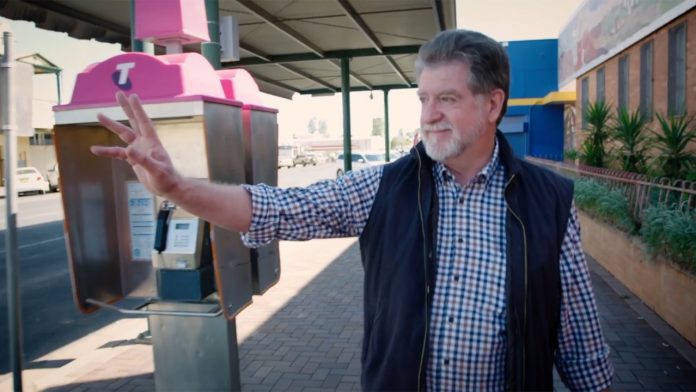Bourke pharmacist Peter Crothers has been named PSA’s Pharmacist of the Year in recognition of the care he has provided for his community under extraordinary circumstances.
Mr Crothers is a founding member of the Rural Pharmacy Network Australia and is a frequent participant in meetings, forums, and inquiries for remote pharmacy practice, integrative care and Aboriginal health. He has made submissions to the Fifth and Sixth Community Pharmacy Agreements, drought policy and GP education. Mr Crothers also works closely alongside local Aboriginal elders to ensure the needs of the community are met.
‘It’s very enjoyable and very rewarding, but it’s also far and away the hardest thing I’ve ever done because of the state of rural health – it’s just abysmal,’ Mr Crothers said.
Bourke, an outback town in north-west NSW, is not only incredibly remote but, as the quintessential Aussie saying suggests, its population is also under-serviced and unwell, Mr Crothers said.
‘We’re dealing with a population that’s 1.5 times more sick than average – the morbidity burden is 150% of normal,’ he said.
‘And at the same time the amount of care that they can access – the number of MBS and PBS items that the population accesses – actually runs at about 70%.
‘So they’re getting less than half the healthcare they deserve and it’s inequitable – it’s just plain unfair.’
Back to Bourke
Mr Crothers relocated from Canberra and bought Bourke’s only pharmacy – Towers Drug Co Pharmacy – from his father in 2001.
Since then, he’s seen just how transient the regional healthcare workforce can be.
‘It’s nothing in this place for the headcount of general practitioners (GPs) to be 50 or 60 over the course of a year,’ he said.
‘At one stage we had 200 GPs work here in less than 18 months.’
Continuity of care
In this state of flux, Mr Crothers and his pharmacy have been a constant.
‘The community comes to us because we’re the continuity of care people,’ he said. ‘People don’t take you for granted out here – we get lots of thanks and appreciation.’
Mr Crothers has refused to run his 140-year-old pharmacy on a locum rotation.
‘I’ve bought a house so that pharmacists have a nice place to live, I help them with relocation expenses, provide a car if they need one,’ he said.
Head west
Mr Crothers is calling on more pharmacists to commit to Australia’s rural, regional and remote communities.
‘The huge advantage you get in places like this is that the learning curve is steeper. You learn more and learn it faster, which can set you up for the rest of your professional life,’ he said.
‘In the bush you never have the luxury of saying “I’m sorry, we can’t help you, but why don’t you try the pharmacy down the road?” So you have to own every problem that presents and that means your problem solving skills go on the fast track.’
Mr Crothers also has a postgraduate diploma of hospital pharmacy. Early in his career, he worked in Canberra as a clinical pharmacy specialist in paediatrics before joining PSA as the organisation’s first full-time pharmacist at the national secretariat.
He founded the AusDi Project in 1996, a joint venture between Australian and US organisations that develops peer-reviewed evidence-based medicine and therapeutic information. Mr Crothers also ran a management consultancy for 15 years, with clients including the Health Insurance Commission (now Medicare). He has been a member of the Clinical Council of the Western NSW Primary Healthcare Network since 2015.



 Professor Margie Danchin[/caption]
Professor Margie Danchin[/caption]

 Dr Peter Tenni[/caption]
Dr Peter Tenni[/caption]
 How should we deprescribe gabapentinoids, according to the Maudsley Deprescribing Guidelines[/caption]
How should we deprescribe gabapentinoids, according to the Maudsley Deprescribing Guidelines[/caption]



 Pharmacists have always prescribed, but they have the potential to prescribe much more
Pharmacists have always prescribed, but they have the potential to prescribe much more






